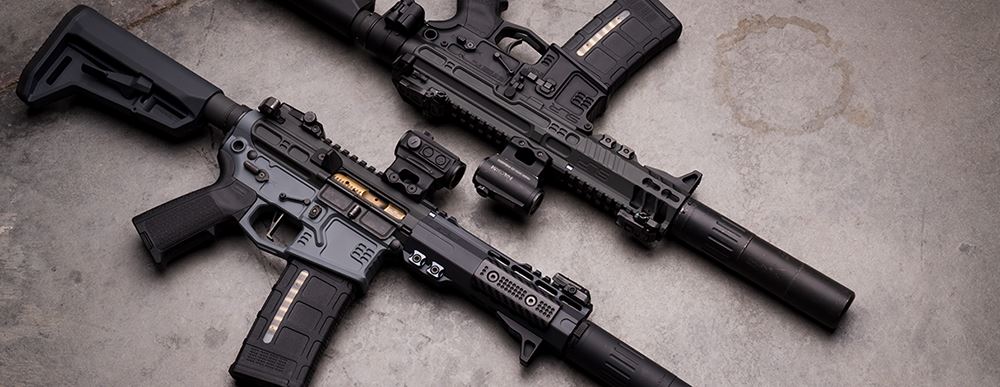
When it comes to home defense, it's tough to beat the AR-15. If you have an AR-15, you know that not all rounds are created equally. Choosing the best ammunition might seem subjective, but there are a few features that typically set the standard for a given application.
Best AR-15 Cartridge for Home Defense
How exactly do you define the best cartridge for home defense? There are two major elements to keep in mind. First and foremost, it's obvious that you want your ammo to be accurate when you're using it for home defense. Beyond that, you also want ammo that is sure to penetrate your target — but without passing through and putting someone else in harm's way.
With these goals in mind, you have a lot to consider when you're choosing the right home defense round for your AR-15.
Common AR-15 Rounds:
- 5.56/.223
- 300 Blackout
- 6.5 Grendel
- 6.8 SPC
- .458 SOCOM
What to Consider When Choosing a Home Defense Round

The three major elements that go into selecting the best home defense round for you are your firearm's twist rate, bullet grain and the types of bullets available.
1. Twist Rate
Barrel twist rate is critical to stabilizing the bullet so it flies accurately. Quantified in inches per turn, the barrel's twist is the rate at which the barrel's rifling rotates and spins the bullet. A 1:9 twist, common in AR-15s, will result in the bullet completing one full revolution in 9 inches of travel.
Ideally, you'll want to choose a bullet suited to your barrel's twist rate. This suitability is largely determined by the bullet's weight in grains.
2. Bullet Grain
The grain is the mass of the bullet, and the available options can vary widely even within the same caliber.
As many AR-15s are chambered for 5.56/.223, here's a quick rundown of the ideal combinations of barrel twist rates with some of the most common bullet grains:
- A 40-grain bullet pairs with a twist rate of 1:12
- A 55-grain bullet pairs with a twist rate of 1:9
- A 62-grain bullet pairs with a twist rate of 1:8 or 1:7
- A 77-grain bullet pairs with a twist rate of 1:7 or 1:8
- An 80-grain bullet pairs with a twist rate of 1:7
You can fire a bullet suited for a slower twist and still expect reasonable accuracy — a 40-grain option in a 1:9 twist, for example — but going in the opposite direction can result in insufficient stabilization and poor performance.
3. Types of Bullets
There are two common types of bullets you'll often see available for AR-15s:
- Full metal jackets (FMJ)
- Hollow point or softpoint (HP or SP)
Full metal jackets are typically used for practice or plinking, while many shooters prefer hollow points for carry and self-defense. Hollow points tend to be more lethal than full metal jackets because they're designed to expand more on impact, meaning they can do more damage. This design also makes the more likely to remain in the target rather than passing through and potentially harming someone else. Despite being banned for military used, many law enforcement agencies use hollow points in part to minimize the risk of bystanders being hit with over-penetrating rounds.
If you're using an AR-15 for home defense, hollow points are definitely the best choice for keeping your family safe.
Build Your Perfect Home Defense AR-15 With Wing Tactical
Our mission at Wing Tactical is to serve every kind of shooter — whether you're a law enforcement officer, a hunter, a survivalist or a competitive shooter. When it comes to home defense, choosing the right ammunition for your AR-15 can make the difference between life or death. Our team knows this, and we'll never steer you toward a product we wouldn't trust enough to use ourselves.
Are you ready to give yourself an edge? Browse our selection of AR-15 parts and accessories to build your perfect system for home defense. We offer next-day shipping on all orders and hassle-free returns within 30 days if you're not completely satisfied. If you have any questions, feel free to send us an email today so we can offer our assistance in pointing you in the right direction.